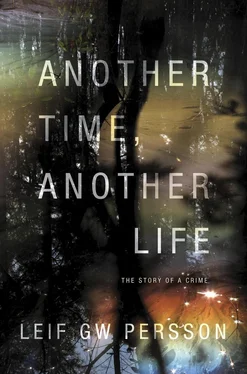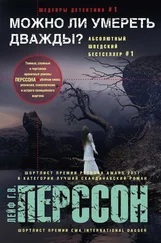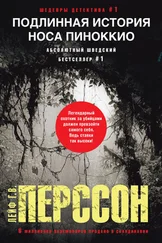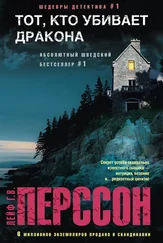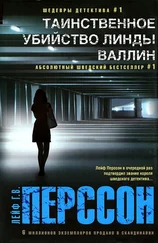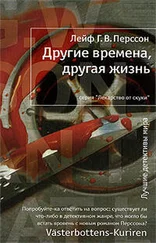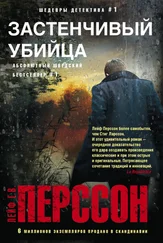“Just imagine if she were the defense minister,” said Johansson. “This would not leak like a sieve. They’d be able to drive her around with a manure spreader.”
“The media,” Johansson continued. “Here in particular, because there is a very unfortunate possibility that a sufficiently thoughtful investigative reporter might piece together the elements of an already famous, very spectacular event — the occupation of the West German embassy — with Eriksson, Tischler, Welander, and Stein. There is also the remarkable circumstance that one of the members of the ‘gang of four’ was suddenly murdered. Not all journalists are idiots,” said Johansson, “far from it, and with the West German embassy in particular it’s probably the case that many of the older journalists were around at the time it happened, and that they had contacts in those circles the four were involved in.”
“That’s enough, that’s more than enough,” said the undersecretary shaking his head in dismay. “But there was something else you were thinking about too. You said four risks... I’ve counted three.”
There were Stein’s own acquaintances and above all Tischler, who knew down to the slightest detail how things stood. Tischler with his big mouth, his uninhibited indiscretion, and his, to say the least, adventurous life. What might happen the day he became angry at “his charming cousin,” or simply let his tongue wag without thinking, or put himself in a position — in relation to the tax authorities, the police, or both — where he might find it expedient to use her as a negotiating tactic.
“Someone like Tischler is a walking bomb, as I’m sure you understand,” said Johansson. “We really ought to have someone like him eliminated immediately,” he added, smiling broadly at the undersecretary.
“No objections,” sighed the undersecretary. “I’ve never liked his type anyway.”
“Well,” said Johansson, leaning back in his armchair, forming his long fingers into a church vault, and observing the undersecretary. “Are we agreed?”
“Yes,” said the undersecretary. “But doesn’t someone still have to talk with Stein?”
So you’ve already talked to her about her becoming a member of the government, thought Johansson.
“You don’t need to say anything, Johansson,” said the undersecretary deprecatingly. “We have the same problem that you do as far as the undesired distribution of information is concerned.”
“I had thought about talking with her anyway,” said Johansson.
“You had?” said the undersecretary with surprise.
“Anything else would be dereliction of duty on my part,” he explained. “It wasn’t that I forgot to mention her, but it’s obvious that in the situation we’re now in, she constitutes the greatest risk.” She might even be cause for your dear boss to have to return to his childhood home in Katrineholm, thought Johansson.
“Thanks,” said the undersecretary. “I understand exactly what you mean.” Anyone at all, but not Göran Persson, he thought.
That evening, before he was to meet Helena Stein, Johansson had dinner with his wife, but because his thoughts were elsewhere not much was said. As soon as he set aside his coffee cup he looked at his watch and nodded at her.
“I have to go,” he said. “I’ll see you in a few hours.”
“It’s secret, of course,” said his wife, smiling.
“Yes,” said Johansson, sighing.
“Is she good-looking?” she asked.
“I don’t really know,” said Johansson. “I’ve only seen her from a distance and never talked with her. In any event she’s not like you.”
“That’s what you say,” said his wife.
“Yes,” said Johansson. “I say that because no one is.”
“Thanks,” she said. “Then you should take care of yourself.”
“Yes,” said Johansson.
But of course Stein was beautiful and not only at a distance, thought Johansson when he was finally sitting in her living room looking at her. Beautiful in the same way as her clothes or the room they were sitting in. Beautiful in a different way than what had been beautiful to him during his childhood, youth, and adult life — the sort of thing that was both beautiful and accessible to him. Helena Stein seemed to be beautiful in an inaccessible way, and sometimes, in moments of weakness, he was seized by a longing for that kind of beauty, because he really did want to live a different life than the life that was his.
“Would you like coffee?” asked Helena Stein.
“No,” said Johansson. “I’m fine. I won’t be long,” he added, thinking he should try to calm her.
“Something tells me this is not going to be a pleasant conversation,” she said, looking at him seriously.
“No,” said Johansson. “I’m afraid not, but I’ve carefully considered the existing alternatives, and this is what I think is best for everyone involved.” And quite certainly for you, he thought.
“I hear what you’re saying of course,” she said, “but I sense that this is about that time twenty-five years ago when I was a naïve child who thought that I was only helping rescue a few German students from being murdered by the German police.”
“Yes,” said Johansson. “I guess that’s how the whole thing started.”
“And if you think I would have done what I did then if I’d understood what they really intended to do, then I don’t think we really have very much to say to each other,” she continued.
“No,” said Johansson, looking at her seriously. “I have never believed for a moment that you would have cooperated with any such thing.”
Because of course I haven’t, he thought. Not since he had gone over Berg’s and Persson’s investigation and spent the weekend reading Mattei’s description of Helena Stein’s life.
“How many people know about this story?” asked Johansson.
“The ones who were inside the embassy, of course. Four of them seem to still be alive — and they’ve probably been out of prison for many years now. The first one was let out in 1993. Because I met only two of them, on one occasion, a brief occasion, and one of them is dead, I’ve never been worried about them. I don’t even think the ones who are left remember me. How would they even recognize me? I looked like a child at that time — I was a child.”
“Then there was your cousin, Theo Tischler, Welander, Eriksson,” said Johansson.
“Yes,” said Helena Stein, smiling bitterly. “Two are dead and one is my cousin. The older brother I never had but always wanted.”
“Have you told anyone else?” asked Johansson.
“Yes,” said Stein, and suddenly there was a glimmer in her eyes. “I’ve told two other men. One of them was a man I had a relationship with, and as soon as I told him he left me. I don’t think he’s told anyone, if you’re wondering about that. I actually think he would be the last person to talk about something like that, simply out of concern for himself.”
“So who was the other man?” asked Johansson.
“Two years ago, before I got my current job, I found out in a roundabout way that you people at SePo were interested in this story and I asked a friend — not a close friend, but a person I rely on and who knows a good deal about these kinds of things — I asked if it might not be best to simply talk about what had happened. Tell the whole story straight out and let the world decide whether I was fit to serve the country.”
“What advice did he give you?” asked Johansson.
“He almost got upset,” said Helena Stein. “It was almost like he’d been involved himself. He advised me firmly against it. According to him, the time wasn’t ripe for that sort of thing, and I could forget about my new job as undersecretary — that it was inconceivable that I would be permitted to continue working in the government offices. So I followed his advice. Was that stupid of me?”
Читать дальше
